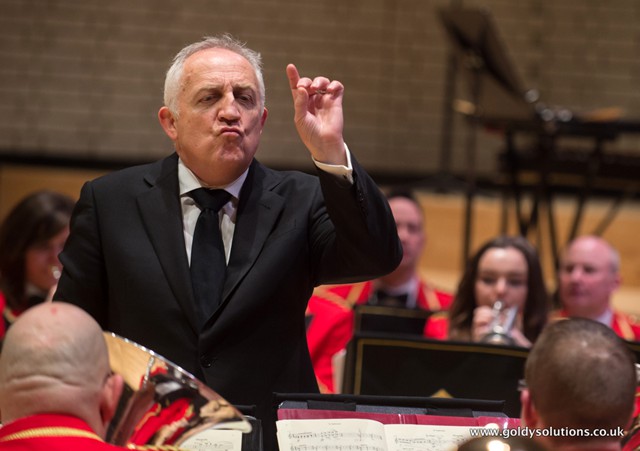
Reviewers of concerts at the Barbican, home of the London Symphony Orchestra, need to go armed with a thesaurus full of superlatives.
And this one from the National Youth Brass Band of Great Britain certainly allowed you to dip into the pages - as up-lifting as any heard of late, and given as part of the LSO’s current season (an accolade in itself), with the orchestra’s managing director, Kathryn MacDowell in the audience to underline its support.
Link
During the pre-concert conversation between Richard Evans, Robert Childs and Bramwell Tovey, we were reminded of the link between the NYBBGB with the LSO - brilliantly emphasised by the orchestra’s youthful principals Philip Cobb and Peter Moore.
Part of this discussion considered whether the size of the band - now around 85, although at the first course in 1952 it was around 100 - was essentially problematic in musical terms.
The evidence on the night was that it was far from it, as it quickly became apparent that the current ensemble held was a huge advantage; a full band sound that was properly balanced with its strong ‘middle’ of horns and baritones – something Bram Tovey explained was created by matching the numbers (and seating plan) to the demands of the music.
Unified
This was also a unified band benefitting from a week of solid rehearsing: Worthy of special commendation was the way in which 37 new members had been integrated into the whole. What might have been seen as a restraint became a positive virtue - a symphonic brass orchestra on a symphony orchestra stage.
This was particularly apparent in Gregson’s ‘Symphony in Two Movements’, where the fullness of sound was admirable.
Tovey was also emphatic in his pre-concert talk about the continuing value of hymn-tune playing. As good as his word, he made the band ‘sing’Roy Terry
Tovey was also emphatic in his pre-concert talk about the continuing value of hymn-tune playing. As good as his word, he made the band ‘sing’ - notably in the ‘Elegy’ from Ireland’s ‘Downland Suite’ and the single, effective encore, the hymn-tune 'St. Clements'.
Unnecessary
Superlatives were unnecessary when it came to the soloists.
Philip Cobb presented the Denis Wright ‘Cornet Concerto’ - a work that combines in classical form the virtuoso features of the traditional cornet solo with ‘Elgarian’ gestures. It was included as a tribute to the band’s founder, Denis Wright, whilst the concert began with a tribute to a previous MD, Elgar Howarth with his teenage work ‘Mosaic’.
Astonishing
Peter Moore presented the jazz-inflected music of Tovey’s ‘Lincoln Tunnel Cabaret’ - an astonishing feat played from memory. Both soloists then collaborated for Turrin’s ‘Fandango’, written for their New York Phil counterparts, Philip Smith and Joseph Alessi. They could not have played it any better.
Of great interest was the premiere of the suite from ‘Dark Arteries’ - Gavin Higgins’ ground-breaking score for Rambert Ballet, and a timely reprise of Joseph Horovitz’s ‘Ballet for Band’, with its echoes of the Vienna of Strauss’s 'Der Rosenkavalier'. In conclusion the band romped through Lucy Pankhurst’s funky ‘Wired’ - the players relishing its ebullient writing.
It made for a concert that certainly lived up to the quote on the cover of the Barbican’s latest concert brochure - with Plato’s, ‘Music gives soul to the universe’.
It’s no hyperbole to say that this concert was ‘good for the soul’ – for players and listeners alike.
Roy Terry









